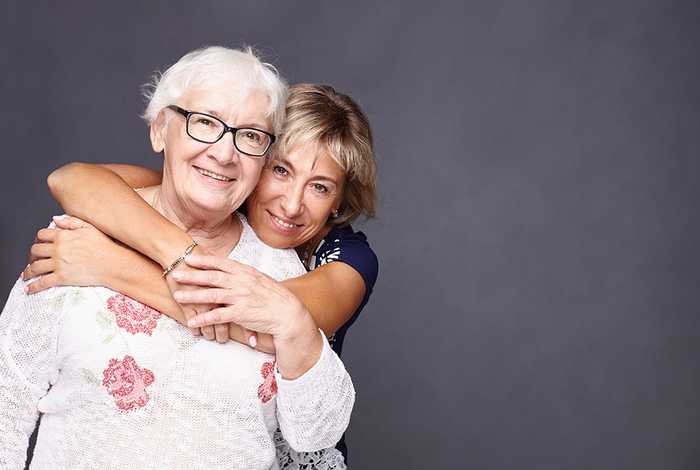Posted by Hannah Rowe
Advocacy - Demystifying Care Terminology
In the next of our series taking the mystery out of social care terminology, we look at Advocacy. What is it, when might it be required, and by whom?
- What is Advocacy?
- What does an advocate do?
- Who might need an advocate?
- What types of Advocates are there?
- Who can be an advocate?
- Why are advocates useful?
What is Advocacy?
When someone requires health and social care support but is finding it difficult to manage the process alone, they may need some help from a third party. The third party can help the person to express their wishes and ensure that their rights are respected, in a service known as advocacy.
What does an advocate do?
An advocate helps someone with health and social care needs to communicate their wishes, and to be aware of and make decisions regarding their options. They can also help people to find the services they need. They can either support the person to speak for themselves, or speak on their behalf if this is more appropriate.
An advocate will achieve this by talking to the person requiring support to identify their wants and feelings; and gathering the necessary information to help them make choices.
Another important part of an advocacy role is ensuring that correct procedures are followed and, if required, challenging decisions made by local authorities or other organisations who provide health and social care.
Advocates work independently of the NHS and local authorities.

Who might need an advocate?
Anyone who finds it difficult to understand the options available to them for their health and social care needs, or who cannot express their needs and preferences, may find the services of an advocate useful. This could be for a number of reasons, including having a physical disability or an age-related condition such as dementia; finding it difficult to get people to listen to them; or because they feel vulnerable or that they are being discriminated against.
What types of Advocates are there?
There are different types of advocacy services, and the type your or your loved one will need depends on your specific situation. The most common types of advocate are:
- Self-Advocacy – if you can speak for yourself, in a confident and informed way, this is often the best solution. There are support groups to help people to grow their confidence to advocate for themselves. However, this is not always possible, which is when other advocates are required.
- A citizen advocate voluntarily speaks on behalf of someone else. They will be unpaid.
- Community advocacy helps with everyday situations, such as writing letters or arranging meetings. POhWER offers this service in some areas.
- A peer advocate is someone who has been through a similar experience. This type of advocate is usually seen in mental health and learning disability settings.
- Group advocacy is, as its name suggests, a group of people who have experienced similar situations, who come together to support each other.
- Care and Support advocates help find care services through the local authority, including organising the required care needs and financial assessments, helping create the care plan, and finding the right care services. VoiceAbility
is an organisation which offers this service. - Issue based advocates are mainly used if someone needs to complain about their treatment within the NHS, for example appealing a Continuing Healthcare (CHC) funding decision. Specialist solicitors such as Farley Dwek
offer this service. - Statutory Advocacy is advocacy set in certain laws and regulations, such as the Mental Capacity Act 2005 and the Mental Health Act 2007.
Who can be an advocate?
If you have a family member, friend, or unpaid carer who you trust to act on your behalf, they can be an advocate. People CANNOT be an advocate if they are your paid or professional carer, or if you do not consent or lack capacity to consent to them acting on your behalf.
If you require an advocate and do not have a family member, friend, or unpaid carer to fulfil this role, contact your local council who will be able to help. They have a duty under the Care Act 2014 to arrange an independent advocate on your behalf if you have no-one to advocate for you.
Support is also available through the following organisations:
- In England, advocacy services are available from POhWER, The Advocacy People and VoiceAbility
- In Scotland, the Scottish Independent Advocacy Alliance has a search facility to find advocates across the country.
- In Wales, advocacy advice can be obtained from Age UK.
- Age UK can offer support and advice regarding advocacy across the UK.
Why are advocates useful?
As we have discussed, if someone requires support but is unable for whatever reason to express their needs and wishes, then having an advocate to do this on their behalf is invaluable.
Although having a friend or family member to advocate for you means that you are being supported by someone with a strong understanding of your needs and wishes, a professional advocate may have wider knowledge of the options and services available to you. Professional advocates are also experienced at the more ‘difficult’ conversations, such as making a complaint or appealing a decision.
Whichever route you choose to take, it is important that you receive the support you need to make the right decisions for you and your family.
None of us know what is around the corner, and when (and how) we may lose capacity to make our own decisions and advocate for ourselves. Arranging a Lasting Power of Attorney (LPA) is a way of protecting yourself and your interests, by making a formal declaration of the person (or people) who you would like to advocate on your behalf if you are unable to do so. More information on this subject, by Autumna’s trusted partners Law & Life at Parfitt Creswell, is available on our legal advice page.
Much more advice on related issues such as finding and funding care, later life planning, and legal matters is available on our advice pages.
Alternatively call our advice line team who will be happy to help you with your next steps in finding the right onward care for you or your loved one. The number is 01892 335 330 and the line is open 7 days a week (Monday – Friday 8.30am – 5.30pm, Saturday 10am – 5pm and Sunday 10am – 4pm).
Receive a Free Care Provider Shortlist!
Let our expert team of advisers get your search off to a great start.
Tell us a little about your needs and we'll send you a bespoke shortlist of care providers! Click the button below to begin, it takes just a few minutes.
Other articles to read
Autumna Blog

Older Persons Care Advice
How to talk to your parents about care options
October 2nd, 2025
Learn how to talk to your parents about care options with compassion. Explore choices together and plan for the future with dignity and respect.

Older Persons Care Advice
Guide to empowering and promoting independence in older age
September 30th, 2025
Read our practical guidance for families on empowering and promoting independence in older age, helping loved ones stay confident and in control.

Older Persons Care Advice
Ultimate guide to jointly owned property and care home fees
September 26th, 2025
Understand jointly owned property and care home fees, how assessments work, and steps to protect your finances and plan ahead with confidence.
Frequently Asked Questions
Advocacy is a service that helps people who are finding it difficult to manage their health and social care needs on their own. An advocate can help the person to express their wishes, ensure that their rights are respected, and find the services they need.
An advocate helps someone with health and social care needs to communicate their wishes, and to be aware of and make decisions regarding their options. They can also help people to find the services they need.
Anyone who finds it difficult to understand the options available to them for their health and social care needs, or who cannot express their needs and preferences, may find the services of an advocate useful.






